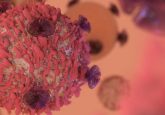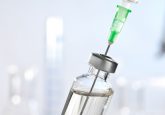Out with the old, in with the new? New HPV vaccine could offer greater protection
Scientists from many institutions, in a study sponsored by Merck, have investigated the efficacy of a new vaccine that could protect against nine types of HPV, seven of which cause most cases of cervical cancer. The results of the investigation, published recently in the New England Journal of Medicine, suggest that this vaccine could offer a much higher level of protection than that of the current vaccine, which can protect against two type of cancer-causing HPV.
“This is a significant achievement. The new vaccine, Gardasil 9, is not only safe but will offer greatly improved protection against cervical and other cancers. Eventually this will mean less screening is needed, as women will have greater protection from the outset,” commented co-author Jack Cuzick (Queen Mary University of London, UK).
Cervical cancer is the fourth most common cancer among women – in excess of 500,000 cases are diagnosed each year worldwide. As almost all cases of cervical cancer are caused by HPV, a vaccine is recommended to protect again the virus. In the UK, the HPV vaccine is currently offered to girls aged 12–13 years as part of the NHS childhood vaccination programme.
Until the end of 2014, there were two available vaccines to protect against HPV-related disease – Cervarix® (GlaxoSmithKline, Brentford, UK) and Gardasil® (Merck, NJ, USA). Gardasil, which is used for vaccination in the UK, protects against four types of HPV. It offers approximately 70% protection against cervical cancer, as well as protecting from the other related types of cancer.
This new trial investigated the safety and efficacy of the new vaccine Gardasil 9 compared with the current vaccine, Gardasil. More than 14,200 women took part in the study, all of whom were aged 16–26 years. The results suggested that if an unvaccinated population is vaccinated with Gardasil 9, an estimated 90% of cervical cancers could be prevented worldwide.
Gardasil 9 was also 97% effective at preventing high-grade cervical, vulvar and vaginal disease caused by HPV 31, 33, 45, 52 and 58. The vaccine was just as effective at protecting against the HPV types that are protected against in the current vaccine HPV 6, 11, 16 and 18.
Co-author on the paper Jack Cuzick (Queen Mary University of London, UK) explained: “This is a significant achievement. The new vaccine, Gardasil 9, is not only safe but will offer greatly improved protection against cervical and other cancers. Eventually this will mean less screening is needed, as women will have greater protection from the outset.”
“Gardasil 9 offers the potential to increase overall cervical cancer prevention from 70 to 90%, nearly eliminating this cancer among vaccinated women. However, it’s crucial to remember that vaccination must be done before exposure to the virus. Our focus for prevention must be on girls aged 12–13, as the current UK vaccine programme is doing, but the vaccine may also be appropriate for women 25–45 as part of a screening appointment,” Cuzick continued.
“Following these important findings, this vaccine has been licenced in the USA and approval is currently being sought in the UK and other countries. It is encouraging that the Joint committee on Vaccines and Immunisation is reviewing Gardasil 9 in light of this new evidence.”
Sources: Joura EA, Giuliano AR, Iversen OE et al. A 9-valent HPV vaccine against infection and intraepithelial neoplasia in women. N. Engl. J. Med. 372(8), 711–723 (2015); Queen Mary University of London press release



